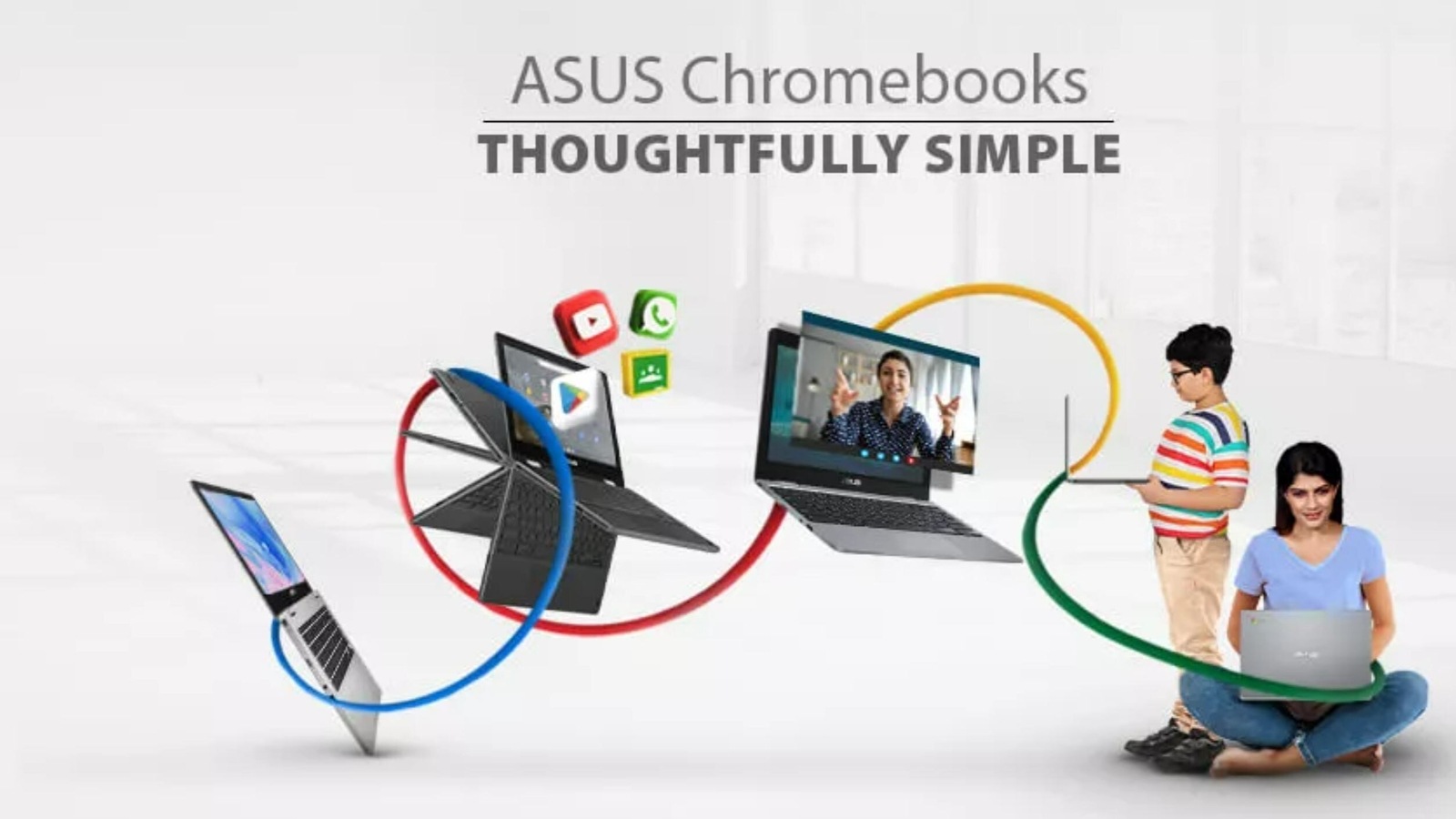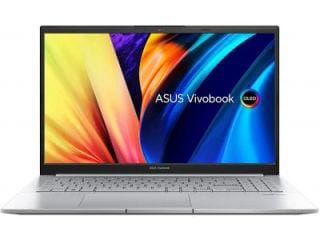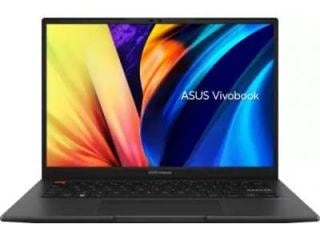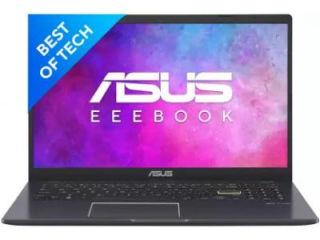Asus’ Dinesh Sharma talks about launching Chromebooks in India, partnership with Flipkart and more
We also talked with Flipkart’s Rakesh Krishnan and Asus’ Leon Yu to understand the trends in consumer PC market in India and how the Covid-19 pandemic had affected this category as far as Asus was concerned. Read on to find out…

Asus is known for its gaming PCs, AIOs, laptops, gaming smartphones and accessories. Of lately, the company has been making strides into the commercial PC segment in India starting with business PCs. The company forayed in the business PC market in India last year by launching its Expertbook laptops, ExpertCentre desktops and AiOs. This year, the company took another step in expanding its presence in the commercial PC market in India by launching six new Chromebook models in the country that are targeted at the students.
These new Chromebooks were launched in partnership with Flipkart and were priced in the range of ₹17,999 and ₹24,999. Apart from the affordability, another interesting thing about these laptops is that they are the first set of Chromebooks launched by the company. The launch also marked the entry of Asus in the affordable PC market in India.
On the sidelines of these developments, we at HT Tech sat down for a conversation with Dinesh Sharma who is the Business Head for Commercial PC and Smartphone, System Business Group, ASUS India; Leon Yu who is the Regional Director, India and South Asia, ASUS and Rakesh Krishnan who is the Senior Director, Electronics at Flipkart to understand the rationale behind launching Chromebooks in India and on the emerging trends in the affordable PC segment in India. Here are snippets of our conversation with them...
Asus is known for its premium laptop and gaming laptops in India. And this is the first time that Asus is venturing into the affordable PC segment. What prompted this change?
Sharma: If you see our overall portfolio, we're present end-to-end in the PC segment and have products that start right from affordable price points below ₹30,000 going up to you know very very high tech gaming products under the ROG brand. But we've got a very attractive range of products on the Windows side of the ecosystem when it comes to providing affordable range...So if you look at the current situation, you know we felt the need to offer more options to Indian consumers to learn from home, work from home in a simple, fast, secure and affordable manner. And that's where we feel you know the Asus Chromebook range can be a perfect solution to meet these needs.
As of now, PCs have shifted to a more individualistic category, right? So, everybody needs one right...Therefore, when you are getting into the expansion of a category into an individualistic level, affordability also matters...We saw Chromebook coming in and fitting that particular need gap very well. Because of the fact that they are very similar to Android and 95% plus of Indian consumers on smartphones use an Android.
So when they are looking at a product to switch to for their laptop, Chromebook fits in very well. It gives you almost a similar kind of user interface and on entry level processors it does pretty good in terms of speed. And we felt it would be brilliant to expand the choice for the Indian consumers on both Chrome as well as Windows operating systems so that we can then make a selection of the product.
Most of us have grown up using Windows PCs. This is true for the current generation of students as well. Do you see this as a challenge? And what is your strategy to bridge this gap?
Sharma: The point is that we are not launching a category in a market which is stagnant. We're launching an option in the market, which is actually growing very, very fast. Earlier you were buying a PC mainly to let's say access business user applications. Today people are buying PCs for applications which are mainly, let's say accessing email, using Zoom, using Microsoft Teams or Google meets to stay connected, work together, study together. They're using platforms like Google Classroom or an equivalent on the Microsoft ecosystem. Now all these applications have suddenly become more web-based.
And another thing is the Android ecosystem itself, which is supported end to end on Chromebooks...So you can download pretty much you know, millions of apps which are available on Play Store including let's say Microsoft Office, word, PowerPoint, excel, whatever you may want to use. Now obviously there are certain apps which are only designed for PCs. There are certain apps which are purely designed for Android. They don't have a kind of cross-ecosystem presence. But at the end of the day, the consumer that we are targeting largely on the Chromebooks is basically students, we're looking at homemakers, we're looking at enterprises who could be more cloud-focused enterprises
On the whole, the Chromebook is like your Android smartphone. You're basically moving up to a PC or laptop experience surface smartphone where you've got a bigger display. You've got a full-size keyboard...So, it has a host of benefits that are very, very relevant for today's types of use-cases. Therefore, from our perspective the timing was pretty right. You know to get into this particular category and bring in a large range of products.
The affordable some of the key features that are going to distinguish you from the competition?
Sharma: We as an organization, have a very, very deep understanding of both, the PC ecosystem and Android ecosystem due to our strong presence in both PC as well as smartphones. Plus we collaborated with Flipkart and you know Flipkart also has extensive understanding of the whole ecosystem and insights and consumers. So this collaboration and the other insights that we have because of our presence across categories has helped us to, you know, design our product offering as well as a support ecosystem to meet the needs of the Indian consumers in a thoughtfully simple manner.
When it comes to Asus, the design and build quality is best in class. Plus if you look at products and you run a feature comparison we have highly differentiated features that are superior at every price point. And we believe that we are well prepared to educate the consumers about the benefits of Chromebooks, and we're also cleared to support the consumer in their usage journey as well. We're having a range of community support initiatives as well. We would be providing resources to consumers to understand Chromebooks better. We would probably conduct sessions once a month or twice a month or thrice a month to...clarify queries or any support required.
You mentioned that all these products will be available via Flipkart. But why Flipkart?
Sharma: Flipkart is a preferred partner. We started with Flipkart on this particular project together to take the proposition to the market. When we are talking about taking the proposition together to the market, you can see we're talking about it together. We are building up the category together...We've been working with Flipkart for decades...It's more about partnership to sell the customer rather than talking about exclusivity.
Are there future plans of bringing these products to other online partners?
Sharma: We will definitely comment on it as and when things unfold.
Asus forayed into the commercial PC market in India last year. How has the overall year been so far?
Sharma: On the commercial PC part I would just like to say that the response has been very very good...We've got extremely positive response on multiple parameters. So one is so the first parameter if I would, was to say which talks about response from the market is the channel itself...We've got very, very solid support from the channel partners and you can say like in each and every market that we operate in, we've got pretty much the A-plus category channel partners working with us. The second important point is the end customers...we've got acceptance and not only acceptance but the repeat orders from marquee very very large enterprises in the country and across segments. These are like very, very large organizations who are having an employee base of even one lakh plus.
So what sort of a trend have you noticed in the PC segment, especially as far as the affordable PC segment is concerned?
Krishnan: The way we look at PCs as a category is that it is a very underpenetrated category in India in general...The study say that the household penetration for PCs is not more than 10%, and that's a very stark number when you benchmark it with some of the household penetration figures of developed countries in the West or even other developing countries in Asia...For the student community, the PC penetration is even lower and as per industry estimates, that stands somewhere in the range of three to 4%, not more. And that is the kind of under penetration that the Indian PC market has.
...Now what COVID did is that it just triggered that latent under-penetrated need that was there in the market and use cases such as work from home, learn from home...all of these trends started emerging and when that started happening, what we realized is that...or rather, the trend that we started seeing is that the demand for affordable PCs...be it in terms of the search queries on the platform or just the way in which people interact with our app, we realize the segment is growing by more than 100% year on year. And that clearly meant that the latent need specifically of students was actually coming to life, and there were students that were actually not just looking for affordable PCs, they also wanted value.
These are some of the trends that we saw that people are actually looking for things like wider screen size, better battery life, more ergonomic touch and feel. It should also be durable and it should, it should withstand minor bruises.
Almost 40 to 45% of all the queries that we get of all the electronic essential products that we see on the platform actually comes from the student board. And that's a very significant contribution when we think of how purchase patterns have changed over the last couple of years where now students are becoming a very big contributor to the sales of a lot of these productivity essential categories like PCs and other affiliated accessories and benefits.
What trend did you notice when it comes to the demand in the affordable PC segment during the pandemic vs the pre-pandemic era?
Krishnan: The demand on our platform is almost to the tune of 100 to 120% spike when you take a pre-pandemic versus a post-pandemic world...Because of the fact that India has seen one of the most severest sort of lockdown scenarios and a lot of people have felt the need for a lot of these devices that enhance their experience of e-learning and other productivity teams. So we are confident that with partnerships like what we have with Asus, we will be able to serve the needs of these students, not just in the short term, but it's a long-term strategic partnership.
What trends have you witnessed as far as computing devices are concerned, especially in regard to the students?
Krishnan: There are two big trends that are coming out right now that students specifically want. One, of course, is e-learning, and the second one is entertainment.
Now if you think of the kind of categories or devices in each of these use cases, let me first talk about e-learning. Under e-learning, you would have all the productivity categories like PCs, printers, monitors, peripherals, accessories like keyboard, mouse, routers and all those other productivity accessories. So all of these categories have seen a spike only because of the e-learning use case.
Now, let's come to the entertainment use case…a lot of entertainment categories, such as video, TV streaming devices, gaming consoles and all of these other entertainment categories have also seen a massive spike.
How, according to you, has the pandemic affected the overall PC market across the globe?
Leon: I think, due to the level of work from home, desktop business has dropped significantly and laptop business has grown significantly. And most of the demand from the desktop business has also shifted to the laptop business. For example, in the past in India, may be for our commercial business may be 50% was desktop. Now, it has dropped to only 25%.
So how has the pandemic been for Asus?
Leon: Due to work from home, the demand surged if we compare it to last year. In April and May, there was a lockdown. During that period for sure the business had been impacted. But after that, we saw a very strong comeback in demand in June. During the October festival season, there was a kind of absurd demand that would not stop.
We've seen you know in the past couple of years that Asus has been consistently expanding its presence and its product portfolio in India. Could you, you know, talk a little about your future plans in India?
Leon: I think there are two major things that Asus is considering. First, I think India is our home market. We always put this as a first priority to bring the needs for the middle-class consumer needs in India because we are very focused on design thinking.
Secondly, I think that Asus is always the most innovative company...We always want to provide something unique, different compared to the others, that is where our strength is. So we will continue to wow our customers with the experience so that is our strategy...We also try to do intensive expansion, no matter which vertical. And even in general, we have a very intense expansion plan that we want to open as many offline channels even during the pandemic, we still have that kind of ambition...And also we want to provide the best service.
Catch all the Latest Tech News, Mobile News, Laptop News, Gaming news, Wearables News , How To News, also keep up with us on Whatsapp channel,Twitter, Facebook, Google News, and Instagram. For our latest videos, subscribe to our YouTube channel.




























